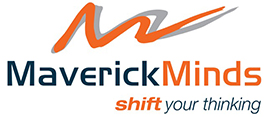Image: Cathryn Lloyd
There I was, waiting at my place for my regular community of practice group to arrive. An always-on-time bunch, this time, no one had arrived by our scheduled start time, and then it dawned on me. We were meeting somewhere else entirely. They were at Stephen’s place, which is where I should have been, too.
We’ve been meeting for over 12 years, generally at each other’s places, occasionally in a public location. We share food and always combine good old hospitality with learning. I’d offered to facilitate a session on the leadership superpowers I’ve been developing with my colleague, Helen Zink (linked here). Somewhere along the way, I conflated ‘facilitating the session’ with hosting the session…at my place!
I started ringing around. No answer, of course, they were already en route or in conversation. Eventually, I got through to Stephen.
“I’ve stuffed up. I thought you were coming to my place.”
He laughed. I didn’t want them to wait for me, and even more impossibly, I didn’t have my car that day. So, what do experienced facilitators do when things don’t go to plan? Of course, we improvised.
Since I was presenting, I needed to be able to communicate, so Stephen set up Zoom, I shared my slides, sent through some resources, set the scene, and away we went. What could have derailed the presentation opened another portal, one that brought the topic to life in unexpected ways.
Amusingly, my session was all about the Leadership Superpowers – flexibility, character, curiosity, resiliency, sensing, linking, learning, candour, resourcing and self-awareness, and one colleague teased, “Well, if you had self-awareness, you’d have checked your calendar.” Fair enough.
But in truth, those same superpowers were exactly what allowed the session to flourish. Stephen’s resourceful thinking with the tech, the group’s candour and trust built over time, and my ability (and theirs!) to adapt and be flexible in the moment.
Together, the group activated our resourcefulness superpower. While somewhat mortified that I had stuffed up, I became very curious about how our unplanned time together would unfold, which led to my being more open and seeing it as an exceptional learning opportunity. While I would have preferred to have been there with them, we were able to solve the challenge relatively quickly. I could sense that once we had settled the tech and saw it working so well – (side note – iPads are brilliant for Zoom – picture perfect and clear sound) – that everyone’s time would be invested well, making it a very valuable session.
Instead of being chaotic, it ended up being one of our richest and most open conversations. The post-session feedback was very positive. People loved exploring the leadership superpowers, their A side and B side (read more here), and how relevant they were for each of them in their own lives. The session allowed us to dig into our qualities and values as leaders. And together we all identified the B-side superpower we felt needed more attention.
On reflection, I wonder what the difference would have been if the stuff-up hadn’t happened. There was something about that disruption that shifted our connection, and the process of adaptation we all experienced, lent itself well to the topic.
What could have been derailed by my super stuff-up ended up creating an expansive albeit unintended approach to our gathering. And while not planned, it brought the leadership superpowers to life in different ways.
Plans don’t always go to plan – things change. We know that, but how do we deal with flux, confusion, uncertainty, and the discomfort of unexpected changes or mishaps in the moment?
Enter leadership coaching superpowers
In times of uncertainty and change, we all draw on leadership superpowers, but on what level are we aware of them? Do we know what our A-side superpowers are? And is this way of being or doing needed right now?
Are we underutilising and minimising other leadership superpowers that would be more valuable for ourselves and others in that moment? How do we treat ourselves or others at those times? Are we kind, generous and understanding or judgmental and critical?
As a leader, sharing your own stuff-ups and fallibility opens the doors for others. Creating an environment, a culture, that allows people to feel confident and safe enough to share stuff-ups is one of the best leadership superpowers we can activate in the spirit of learning.
I’m curious – how have your stuff-ups (if you’ve had any ☺) turned into super learning experience?
Helen and I have created a range of practical resources that are based on our experience of the most common superpowers that leaders require. You can jumpstart your understanding by downloading our guide here.
If you want to tap into our experience directly and apply it to your situation, we’d love to have a Leadership Superpower conversation with you and your team.

